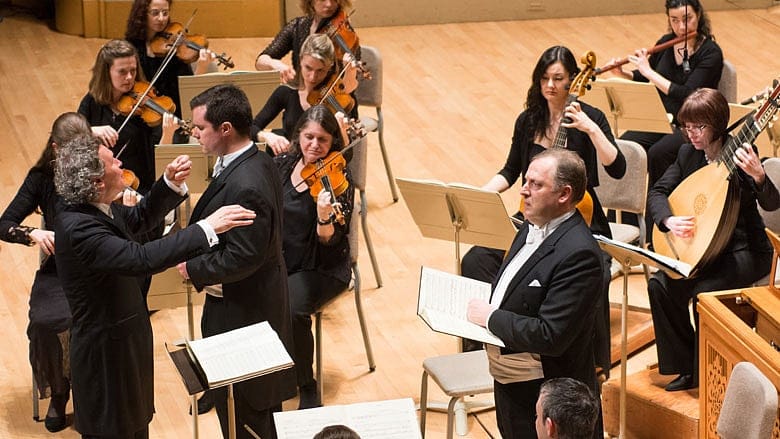Bach performed with rare profundity at H+H concert

Authenticity is an elusive accomplishment when performing that most profound of musical scores, Bach's St. John Passion. Artists must interpret the text in a way that is moving but not maudlin and hopeful without being saccharine. On Friday night, the Handel & Haydn Society succeeded admirably at the task. Harry Christophers' perspicacious conducting elicited the type of superior performance one hopes to hear with Bach's mighty work.
Bach wrote the St. John Passion oratorio during his first year as the church music director of Leipzig, Germany. The première was on April 7, 1724 at St. Nicholas Church for the Good Friday Vespers. The score alternates between recitatives, which tell the Passion story, and arias and chorales that either assume character roles or provide stirring reflections on the text.

